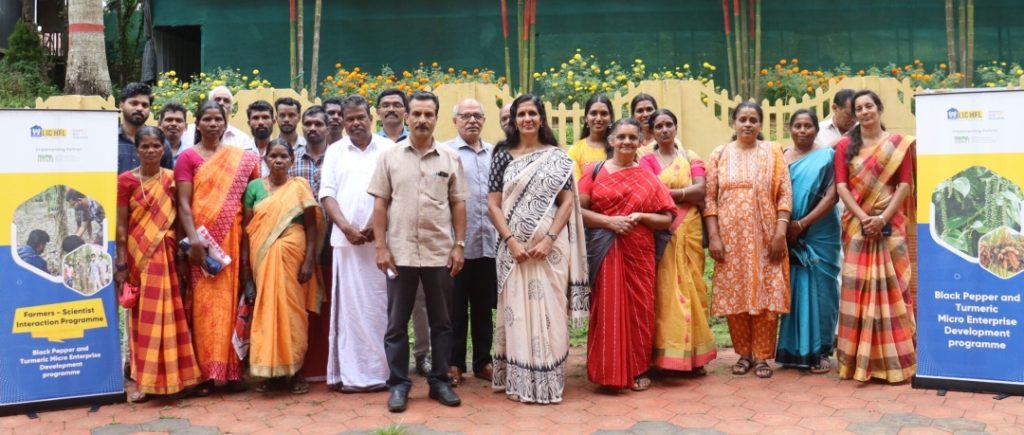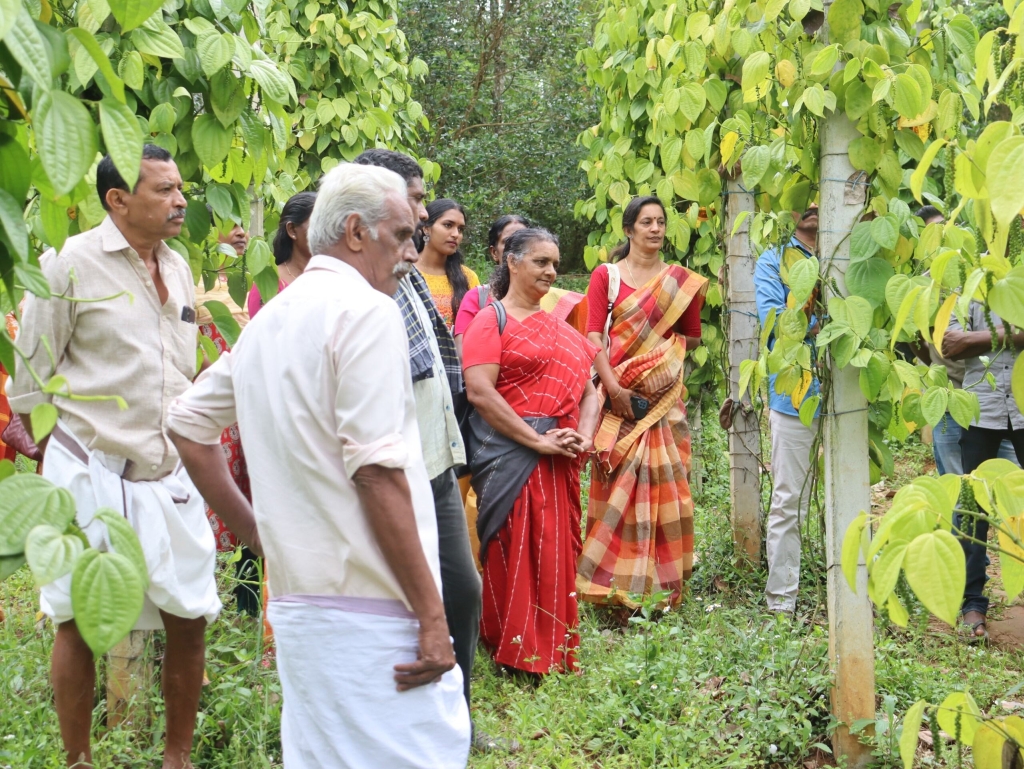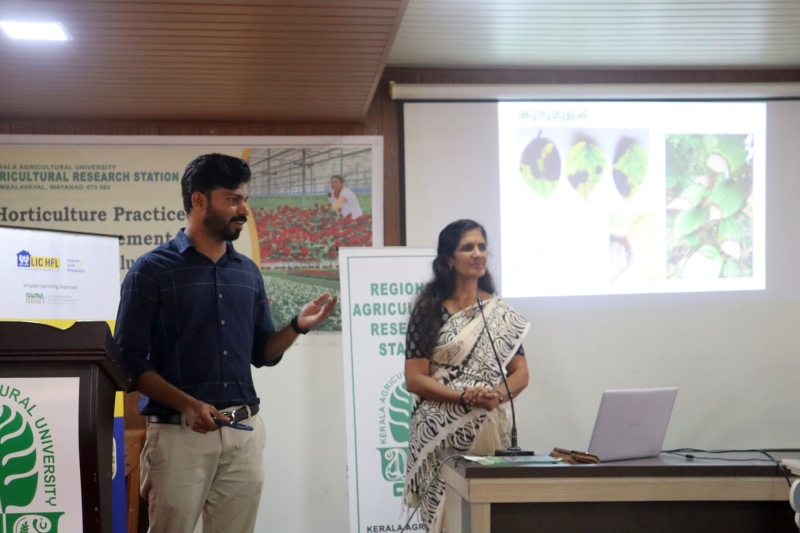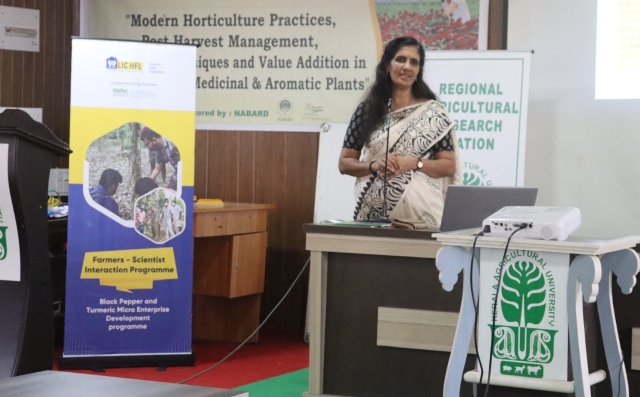On September 26, 2024, a one-day Farmer-Scientist Interaction Programme and Pepper Demonstration Plot Visit was successfully organized at the Regional Agricultural Research Station (RARS), Ambalavayal, Wayanad. The event was part of the ongoing initiatives under the LIC HFL CSR-supported project, aimed at promoting sustainable agricultural practices, value addition, and micro-enterprise development in black pepper and turmeric cultivation. The programme’s primary objective was to foster dialogue between farmers and agricultural scientists, facilitating a better understanding of challenges and potential solutions.

A total of 25 farmers from Noolpuzha and Cheeyambam Tribal Hamlet clusters participated in the programme. The programme began with a visit to the Vietnam Model Pepper Demonstration Plot at RARS. Ms. Annena K S, Farm Officer, RARS Ambalavayal, guided the participants through the plot, explaining the significance of adopting the Vietnam model for pepper cultivation. The farmers actively engaged and asked questions about the model’s applicability to local conditions.

Following the field visit, a technical session was led by Dr. Yamini Varma C K, Associate Director of Research, RARS, who focused on pepper cultivation practices, disease management, and fertiliser use. The session emphasised sustainable farming techniques, pest control, and effective fertiliser application in Pepper. At the end of the technical session, a vibrant discussion took place between the participating farmers and the scientists. Farmers shared their experiences, challenges, and concerns regarding pepper disease management.
The Farmer-Scientist Interaction Programme and Pepper Demonstration Plot Visit proved to be a valuable experience for the participating farmers.


‘ The practical knowledge shared during the field visit and the technical session equipped them with improved methods for enhancing pepper cultivation. The interactive discussions fostered a deeper understanding of how modern techniques can be adapted to local agricultural conditions, thereby helping to improve both the productivity and sustainability of pepper farming.’ The practical knowledge shared during the field visit and the technical session equipped them with improved methods for enhancing pepper cultivation. The interactive discussions fostered a deeper understanding of how modern techniques can be adapted to local agricultural conditions, thereby helping to improve both the productivity and sustainability of pepper farming.
